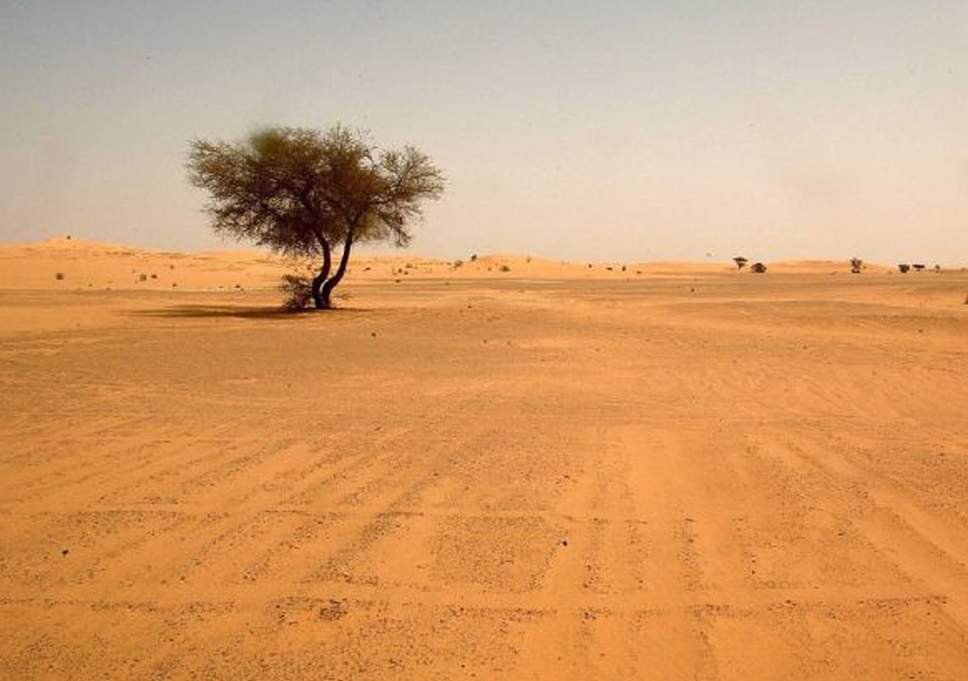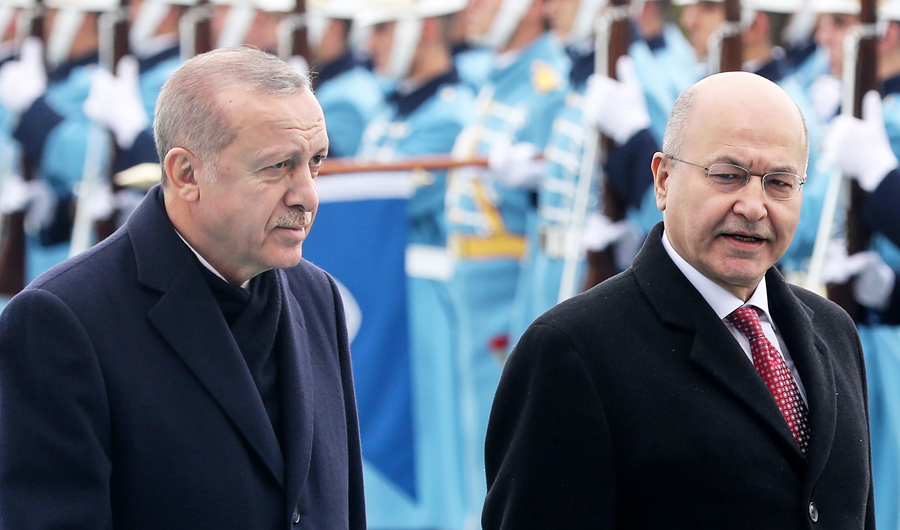ANKARA: Iraqi President Barham Salih’s first official visit to Turkey’s capital since his election in October indicates an emphasis on cooperating against terrorism, experts say.
At a joint press conference, he said relations with Turkey will be “shoulder to shoulder, in full solidarity,” adding that he expects Ankara to contribute to reconstructing Iraqi regions where terrorism has been eliminated.
Ankara aims to boost security cooperation with Baghdad, Turkish President Recep Tayyip Erdogan said at the press conference, adding that “there’s lots we can do with Iraq” in that regard.
Muhanad Seloom, associate lecturer in politics at Exeter University, said the issues of sharing water, Kurdish militancy and trade will frame bilateral relations for the foreseeable future.
“I expect the Turkish government to continue seeking cooperation with the Iraqi federal government to end the presence of the PKK (the Kurdistan Workers’ Party) in Iraq, especially in areas outside the Kurdish Regional Government’s (KRG) control,” he told Arab News.
“However, the PKK’s main camps are located inside Iraqi Kurdistan and on the borders — areas over which the central government in Baghdad has little control,” he said.
“The central government, however, could provide Turkey with legal cover to continue its military incursions in Iraqi border areas to target PKK fighters.”
In terms of the joint fight against Daesh, experts underline Turkey’s reconstruction efforts in Iraq and ongoing intelligence cooperation between the two countries.
In February 2018, Iraq secured about $25 billion at an international donors’ conference in Kuwait, where Turkey pledged a credit facility of $5 billion. Major Turkish companies are expected to conduct reconstruction projects in war-torn areas of Iraq.
Last year “witnessed several cases where Turkish and Iraqi intelligence services cooperated to arrest and extradite Iraqi citizens accused of terrorism offenses,” Seloom said.
Last February, Ismail Alwan Salman Al-Ithawi, a top Daesh leader, was captured following cooperation between Turkish, Iraqi and US intelligence agencies.
Seloom said another area of potential cooperation could be in Syria, in light of the possible withdrawal of US forces.
“The Iraqi prime minister has already expressed his desire to intervene militarily in Syria to make sure any potential Daesh resurgence doesn’t spill over into Iraq,” Seloom added.
Last week, Iraqi fighter jets pounded strategic Daesh positions in eastern Syria, killing 30 of its commanders. In 2018, Iraq sentenced more than 600 foreigners over their links to Daesh.
Baghdad and Ankara boosted ties after the latter’s forceful stance against the KRG’s independence referendum in September 2017.
Turkey and Iraq are expected to continue their high-level strategic council meetings throughout the year. Iraq is one of Turkey’s major trade partners, with bilateral trade at around $10.6 billion in 2017. The state-run Trade Bank of Iraq recently announced its plan to acquire a Turkish bank.
Last year, Turkey conducted several cross-border operations into Iraq. Erdogan had vowed to expand the military campaigns to the cities of Kirkuk and Mosul, and the town of Sinjar — PKK strongholds in northern Iraq — to prevent the group from setting up new headquarters in the region.
Galip Dalay, a visiting scholar at Oxford University and research director at Al-Sharq Forum, said Salih aims to develop good relations with regional actors, including Turkey and Saudi Arabia.
“Salih has a successful diplomatic background also among Iraqi Kurds, as well as with countries such as the US. He’s trying to become the international face of Iraq and to initiate a regional rehabilitation,” Dalay told Arab News.
Turkey has not yet lifted its ban on flights to and from the city of Sulaymaniyah in Iraqi Kurdistan, citing security concerns.
City officials are reportedly continuing to lobby Ankara to lift the ban, which is seen as a means of putting pressure on the Patriotic Union of Kurdistan (PUK), which controls the provincial administration, to halt its assistance to the PKK.
Dalay said Iraqi-Turkish cooperation against terrorist groups is unlikely to include the Syrian-Kurdish People’s Protection Units (YPG) and its political wing, the Democratic Union Party (PYD).
“Although he doesn’t lean toward their militant position, Salih is ideologically close to the secular left-wing in Kurdish politics. He has close ties with the PYD and conducts backdoor diplomacy with it,” Dalay said.
In October 2017, Iraq’s federal government captured the oilfields of Kirkuk from the KRG. Before that, the oil-rich, semi-autonomous region was exporting crude oil to Ceyhan port on Turkey’s Mediterranean coast — the only available outlet for exports from Kirkuk.
The resumption of oil flows from Kirkuk following a tentative agreement in November was key for countries to reduce their reliance on Iranian crude oil.
Iraq’s prime minister recently said Baghdad will increase oil exports from Kirkuk to Ceyhan from 60,000 barrels per day (bpd) currently to 100,000 bpd, with revenues from these exports going to the federal government.
Dalay said: “Turkey values the territorial integrity of Iraq and wouldn’t prefer the dominance of any group in Kirkuk. But a sharing of power without excluding Kurds completely would be preferable.”




